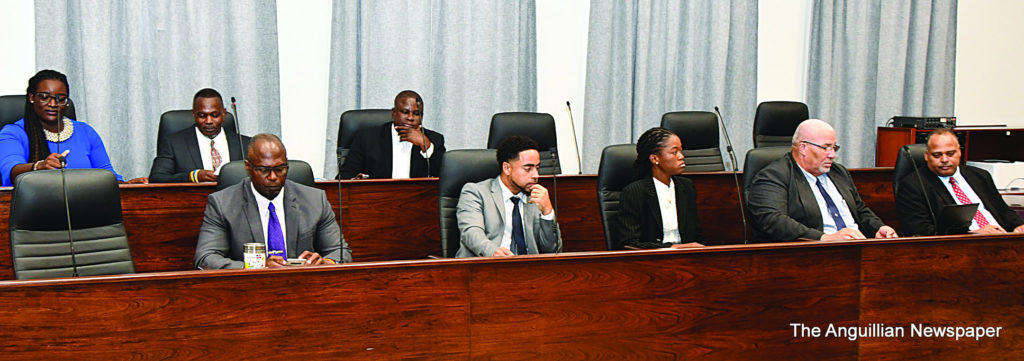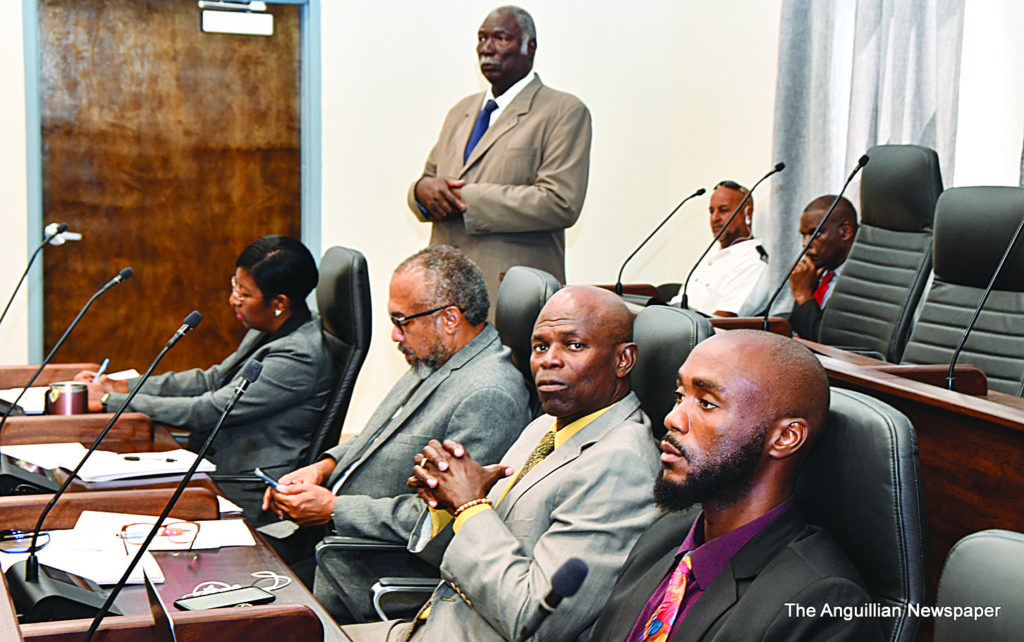The proposed Goods and Services Tax was due to be implemented by the Government of Anguilla as from January 1, 2021, on the urging of the UK Government, as a means of responding to the declining and dire revenue position on the island.

However, that date passed without the implementation of the tax and, instead, there has been a number of public consultations during which the people of Anguilla have loudly voiced their disapproval. Among other matters, they have argued about the GST against a backdrop of other taxes and fees which they felt were exorbitant – and months of unemployment, severely reducing their power of spending and rending many of them struggling for survival.
The protesters against the GST are not just ordinary members of the public, but business persons, as well, who felt their various enterprises would be significantly impacted by the tax – notwithstanding the possibility of it being passed on to customers in terms of payment for services.

The concern and anger of the people mushroomed into a hastily-organised collection of signatures against the GST throughout Saturday, March 20, at a number of locations, including at the People’s Market, as well as online. In the end there was a total of 1,400 signatories, representing persons of all walks of life.
It was arranged for two petitions, the first somewhat reworded, to be submitted in the sitting of the House of Assembly on Tuesday, March 23. The question facing the protesters was whether they would be allowed into the House, given a past situation when a number of protesters, against a different matter, stormed the House of Assembly, having been denied access.
This time, however, the Speaker, Mrs. Barbara Webster Bourne, supported by the Government, took the position that the Parliament was “the People’s House” and that up to the 60 persons, capacity of the House, would be permitted inside. She cautioned, however, that they should respect the “Honourable House which our forebearers built”.
Accordingly, the Protesters filed into the House – where some police officers were on duty – and demostrated a spirit of good decorum, attentively listening to the proceedings which began with a statement by the Speaker. Among other matters, she announced the setting up of a Select Committee, comprising at least four members of the House of Assembly and two members of the public, on the recommendation of the petitioners, to look into the complaints of the protesters. The Committee is to be established by Tuesday, March 30, and to deliver its report to the House within three months.
The Speaker described the Committee as being a “formal channel so that members of the public can express their concerns to the Assembly in a structured manner and have them heard.” (See the Speaker’s relevant statement elsewhere in this edition of The Anguillian newspaper.
At the Speaker’s invitation, the Deputy Speaker, Mr. Merrick Richardson, read the two petitions from the Concerned Citizens of Anguilla. (See story also in this edition of The Anguillian.
Following the reading of the petitions, the Order of Business of the House of Assembly was introduced by the Clerk, Mr. Lennox Proctor. He listed the Bills for their first reading as follows:
• A Bill for Recording of Court Proceedings (Amendment) Act, 2021;
• A Bill for Resort Residence Annual Levy Act, 2021;
• A Bill for Child Justice Act, 2021;
• A Bill for Goods and Services Tax, 2021.
As seen, the GST Bill was the last of the four pieces of draft legislation announced in the House of Assembly by the Clerk. Commentators noted that it was slipped in without any comments by the protesters in the gallery, who had previously expressed their objection to even the mentioning of the Bill – let alone its first reading!
However, the fact that the implementation of the GST has been rolled back to July 2022 – as a press release from the Office of the Premier and Minister of Finance stated – is a result of the power of the people and their right of freedom of expression.










